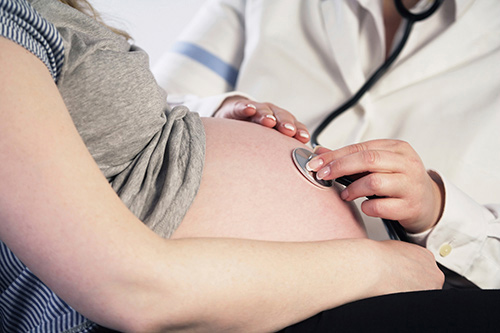
Thermo Fisher Scientific announced today that its B·R·A·H·M·S PlGF plus KRYPTOR and B·R·A·H·M·S sFlt-1 KRYPTOR novel biomarker assays have received marketing clearance from the FDA for risk assessment of preeclampsia. The novel immunoassays are the first and only one to receive breakthrough clearance of this life-threatening blood pressure disorder that occurs during pregnancy.
The new assays are intended to be used in conjunction with other existing tests and assessments of women deemed at risk who have been hospitalized with hypertension associated with pregnancy and will help determine if they are progressing to preeclampsia within the next two weeks.
“Today’s clearance of these breakthrough biomarkers will have a significant impact on prognosis and treatment for thousands of women at risk for preeclampsia every year in the U.S.,” said Alan Sachs, chief medical officer, Thermo Fisher Scientific.
The regulatory approval of the use of the blood-based biomarkers B·R·A·H·M·S sFlt-1 KRYPTOR and B·R·A·H·M·S PlGF plus KRYPTOR comes six months after a Thermo Fisher-funded study led by Ravi Thadhani, MD, of Cedars Sinai provided evidence that measurement of serum sFlt-1:PlGF provides stratification of the risk of women progressing to severe preeclampsia within the next two weeks. The results of the PRAECIS (Preeclampsia Risk Assessment: Evaluation of Cut-offs to Improve Stratification) study were published in November in New England Journal of Medicine Evidence.
“FDA clearance and availability of these novel biomarker tests throughout the country will allow caregivers to better manage and potentially improve outcomes for both mothers and their newborns,” noted Thadhani who is also executive vice president of health affairs at Emory University.
The approval comes at a critical time as preeclampsia rates in the United State have risen rapidly over the past 15 years. According to research published late last year in the Journal of the American Heart Association, the rate of preeclampsia double in US between 2007 and 2019 and has shown an acceleration since 2014. Overall costs of the condition total more than $2 billion annually, according to data published in the American Journal of Obstetric Gynecology, with 17% of maternal deaths and 15% of preterm births a result of preeclampsia.
“Patients and providers will benefit from having better tests to predict progression to preeclampsia with severe features, especially for those patients at risk of severe, early-onset disease or for whom there is some diagnostic uncertainty,” said Eleni Tsigas, chief executive officer at the Preeclampsia Foundation. “Our organization celebrates this result after many years of advocacy with leaders in research and regulatory bodies, such as the FDA, to accelerate the development and adoption of better clinical tools.”
The new assays are designed to run on Thermo Fisher’s B·R·A·H·M·S KRYPTOR compact PLUS clinical chemistry analyzer. Using TRACE technology, the assays can deliver results in as little as 30 minutes.











